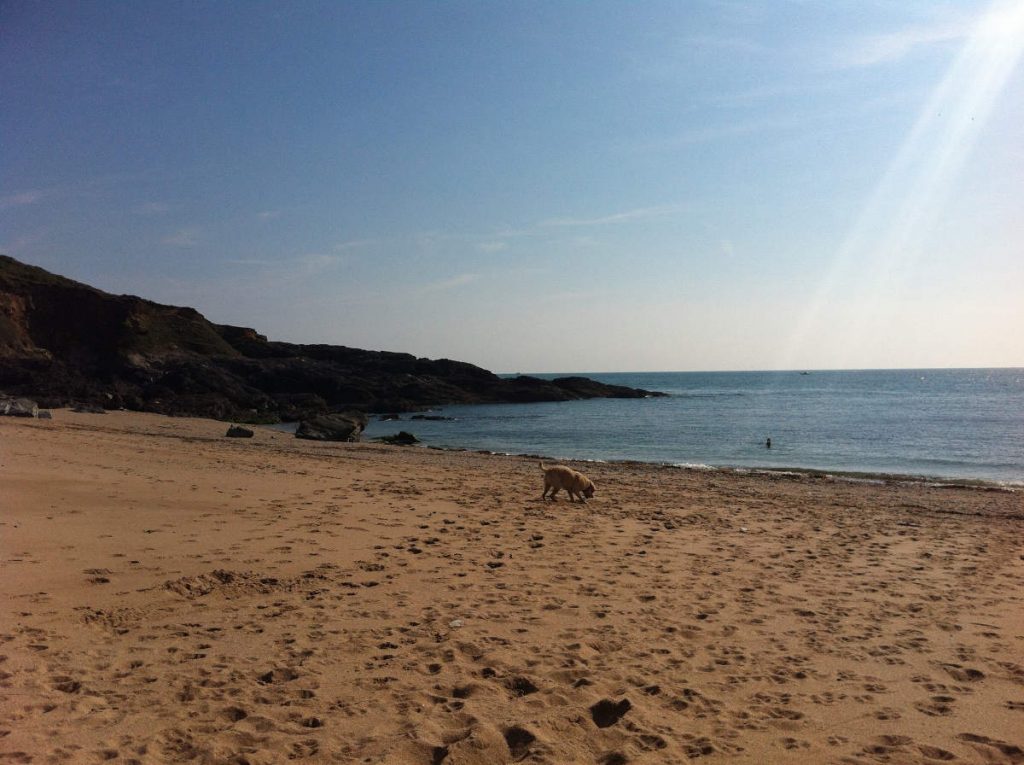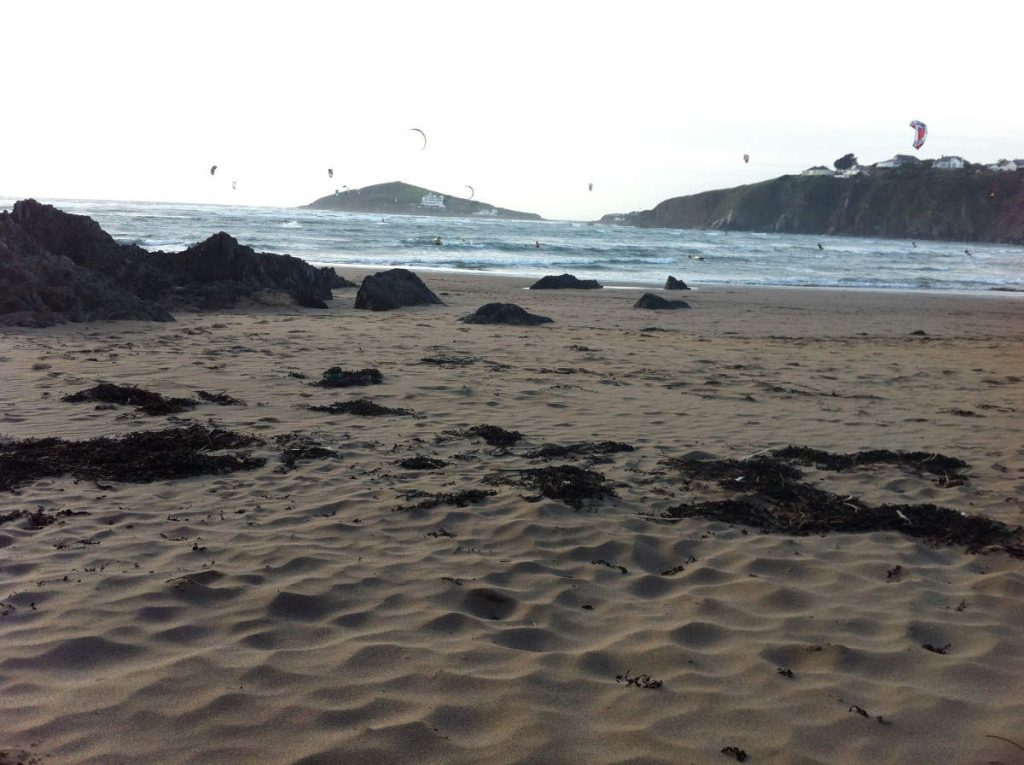Despite having a typically British rainy summer, many more UK residents have been holidaying at home this year, due to the huge drop in the Pound’s value since the vote for Brexit on June 2016.
When the shocking EU Referendum’s result was announced last year, the Pound crashed against the Euro and other currencies and has not managed to recover since.
The National Tourism Agency, VisitBritain, said the UK has received an increase in overseas visitors this year, particularly from North America and Eurozone countries. So, not only the currency’s downhill slide has encouraged more British people to travel around the UK, but also overseas visitors have hit a record high last year.
Before the Referendum, Brits could buy nearly 1.4 Euros for their Pound. Since the Brexit result it’s hovered around 1.1 Euros to the Pound, and at times it has reached neared parity. Moreover, some problems have arisen for those who leave money exchanges’ transactions to the last minute at airports as there have been occasions when they’ve received less than one Euro for their Pound.
The Office for National Statistics said: ‘Following the EU referendum, the value of sterling fell sharply against a basket of currencies at the end of June 2016 and has continued to remain well below the pre-referendum value of sterling.’
Devon, a typical coastal tourist area in the South West of England, has been experiencing record levels of tourism numbers this summer – from both UK nationals and international tourists.
[caption id="attachment_2032" align="aligncenter" width="640"]

Devon county Beach. Photo by: Kate Cotton.[/caption]
A spokesman for Visit South Devon said: ‘Since the start of 2017 the Visit South Devon website has seen a large increase in traffic over 2016.
‘In a recent survey of our holiday advertisers, 60 per cent predicted that July to September 2017 would be better than last year.’
Chris Murray is Chairman of Devon Association of Tourist Attractions, a group of 42 top attractions including his own Pennywell Farm, National Trust properties and the National Marine Aquarium in Plymouth.
He mentioned they have been recording numbers of tourists this summer at the attractions, and he has noticed a significant increase in tourists from the Eurozone countries.
He said: ‘We’ve had a lot more visitors from overseas this summer because of the Pound being not so powerful and the Euro being so strong.
‘During the summer holidays, we’ve seen some of our busiest days ever. Numbers are generally up at all the attractions due to extra visitors from abroad; people on ‘staycations’ in Devon; and also people staying at home and making longer day trip visits’.
[caption id="attachment_2035" align="aligncenter" width="640"]

Bantham Beach with wind parachute surfers, South Devon. Photo by: Kate Cotton[/caption]
‘We’ve had a lot more day visitors from all over the country, even from hundreds of miles away. People can afford petrol but not the overnight accommodation.’
A spokesman for the Agency said: ‘The UK received 3.5 million overseas visits in June, up from seven per cent on June last year and setting a new June record’.
‘Between April and June 2017 there were 10.8 million inbound visits to the UK, eight per cent up on the same period last year’.
‘Over the longer term, 12 months to June 2017, there were 39.1 million visits to the UK – the best ever rolling 12-month period.’
The figures for visits were broken down into reasons for travel, including holidays, visits to friends and relatives, and business. Of those visits, holidays were found to be significantly high, while business visits to the UK were down over the year.
The spokesman added: ‘Holiday visits were up 21 per cent to a June record of 1.6 million. There was a record 7.5 million holiday visits in the first half of 2017, up 20 per cent on the start of 2016 and the first time more than 7 million holiday visits have arrived in the UK before the start of July’.
‘Over the longer-term rolling 12 months to June 2017, the UK welcomed 15.2 million holiday visits – a record and 12 percent higher than the previous 12-month period.’
 Devon county Beach. Photo by: Kate Cotton.[/caption]
A spokesman for Visit South Devon said: ‘Since the start of 2017 the Visit South Devon website has seen a large increase in traffic over 2016.
‘In a recent survey of our holiday advertisers, 60 per cent predicted that July to September 2017 would be better than last year.’
Chris Murray is Chairman of Devon Association of Tourist Attractions, a group of 42 top attractions including his own Pennywell Farm, National Trust properties and the National Marine Aquarium in Plymouth.
He mentioned they have been recording numbers of tourists this summer at the attractions, and he has noticed a significant increase in tourists from the Eurozone countries.
He said: ‘We’ve had a lot more visitors from overseas this summer because of the Pound being not so powerful and the Euro being so strong.
‘During the summer holidays, we’ve seen some of our busiest days ever. Numbers are generally up at all the attractions due to extra visitors from abroad; people on ‘staycations’ in Devon; and also people staying at home and making longer day trip visits’.
[caption id="attachment_2035" align="aligncenter" width="640"]
Devon county Beach. Photo by: Kate Cotton.[/caption]
A spokesman for Visit South Devon said: ‘Since the start of 2017 the Visit South Devon website has seen a large increase in traffic over 2016.
‘In a recent survey of our holiday advertisers, 60 per cent predicted that July to September 2017 would be better than last year.’
Chris Murray is Chairman of Devon Association of Tourist Attractions, a group of 42 top attractions including his own Pennywell Farm, National Trust properties and the National Marine Aquarium in Plymouth.
He mentioned they have been recording numbers of tourists this summer at the attractions, and he has noticed a significant increase in tourists from the Eurozone countries.
He said: ‘We’ve had a lot more visitors from overseas this summer because of the Pound being not so powerful and the Euro being so strong.
‘During the summer holidays, we’ve seen some of our busiest days ever. Numbers are generally up at all the attractions due to extra visitors from abroad; people on ‘staycations’ in Devon; and also people staying at home and making longer day trip visits’.
[caption id="attachment_2035" align="aligncenter" width="640"] Bantham Beach with wind parachute surfers, South Devon. Photo by: Kate Cotton[/caption]
‘We’ve had a lot more day visitors from all over the country, even from hundreds of miles away. People can afford petrol but not the overnight accommodation.’
A spokesman for the Agency said: ‘The UK received 3.5 million overseas visits in June, up from seven per cent on June last year and setting a new June record’.
‘Between April and June 2017 there were 10.8 million inbound visits to the UK, eight per cent up on the same period last year’.
‘Over the longer term, 12 months to June 2017, there were 39.1 million visits to the UK – the best ever rolling 12-month period.’
The figures for visits were broken down into reasons for travel, including holidays, visits to friends and relatives, and business. Of those visits, holidays were found to be significantly high, while business visits to the UK were down over the year.
The spokesman added: ‘Holiday visits were up 21 per cent to a June record of 1.6 million. There was a record 7.5 million holiday visits in the first half of 2017, up 20 per cent on the start of 2016 and the first time more than 7 million holiday visits have arrived in the UK before the start of July’.
‘Over the longer-term rolling 12 months to June 2017, the UK welcomed 15.2 million holiday visits – a record and 12 percent higher than the previous 12-month period.’
Bantham Beach with wind parachute surfers, South Devon. Photo by: Kate Cotton[/caption]
‘We’ve had a lot more day visitors from all over the country, even from hundreds of miles away. People can afford petrol but not the overnight accommodation.’
A spokesman for the Agency said: ‘The UK received 3.5 million overseas visits in June, up from seven per cent on June last year and setting a new June record’.
‘Between April and June 2017 there were 10.8 million inbound visits to the UK, eight per cent up on the same period last year’.
‘Over the longer term, 12 months to June 2017, there were 39.1 million visits to the UK – the best ever rolling 12-month period.’
The figures for visits were broken down into reasons for travel, including holidays, visits to friends and relatives, and business. Of those visits, holidays were found to be significantly high, while business visits to the UK were down over the year.
The spokesman added: ‘Holiday visits were up 21 per cent to a June record of 1.6 million. There was a record 7.5 million holiday visits in the first half of 2017, up 20 per cent on the start of 2016 and the first time more than 7 million holiday visits have arrived in the UK before the start of July’.
‘Over the longer-term rolling 12 months to June 2017, the UK welcomed 15.2 million holiday visits – a record and 12 percent higher than the previous 12-month period.’
